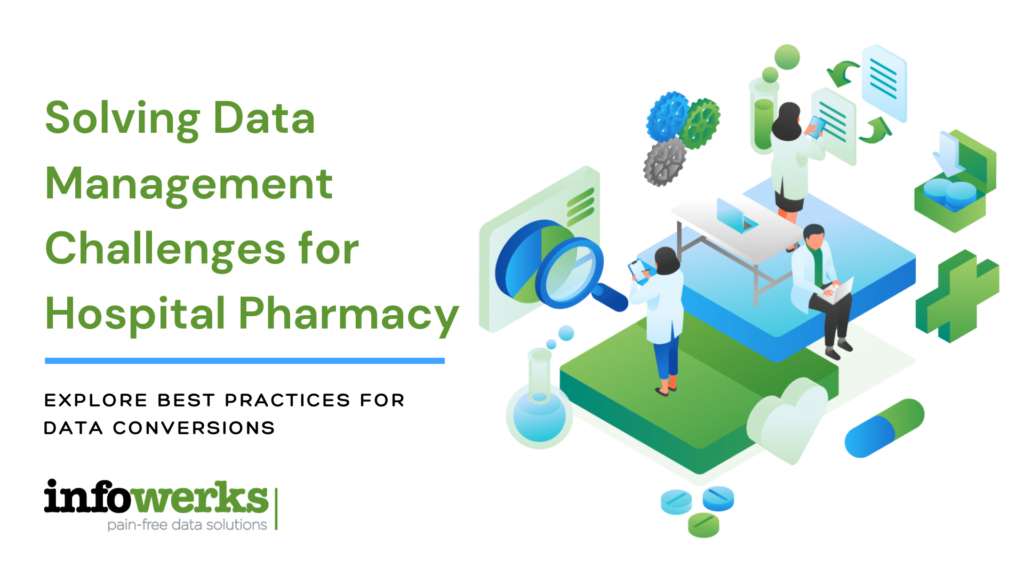In many cases, a data conversion for pharmacy systems is simple. It’s one location changing their software. However, in the case of chain pharmacy or hospital pharmacy, there can be multiple locations. The need to migrate data can be due to an acquisition or a systemic switch to a new provider. This can be very cumbersome and concerning for pharmacy leaders. However, a multi-location pharmacy data conversion is easy with InfoWerks. See how we make it pain-free.
How Do Multiple Locations Impact a Data Conversion?
The simple answer is that there is more data! How you convert will depend on your specifications. Some questions we would ask include:
- How much data do you want to keep for each location? For example, most migrations keep two years of current data.
- Are any locations closing and need data migrated to a new site? If you are closing a pharmacy, you’ll need to convert that data to another new location and archive the rest.
- Do you want to archive data? And if so, who will need access? Archiving pharmacy records is a cost-effective way to ensure you met record retention requirements and can quickly obtain the files from a web-based system.
- What is your current software and your new software? Once we know this, we can determine if there are outliers or considerations, as each software is unique. Luckily, we’re platform agnostic and have worked with over 150 different ones.
Does a Multi-Location Pharmacy Data Conversion Take a Long Time?
The specific timespan for your data migration is dependent on many factors. The amount of data is one of the most significant. Also, the cooperation of your current and future vendor will impact the timeline.
Multi-locations aren’t always longer. The best thing you can do is plan ahead. Choose your data conversion partner early and work out the timeline with them from the start so that your Go-Live meets your needs.
Are There Other Special Requirements for Multi-Locations?
The number of locations matters less than the accuracy and state of the data. If there is a large amount of unstructured data, that can add additional requirements to the project. Our specific process has steps that take into consideration all the things we know to be true about data pharmacy conversions.
We know all the areas that can cause challenges and proactively prepare for them with our customers. You can learn more about pharmacy data conversions in our whitepaper, The Ultimate Guide to Pharmacy Data Conversions.
Trust InfoWerks with Your Conversion Projects
We’ve been migrating pharmacy data for over two decades, and we’ve got you covered. If you’re beginning a conversion project, then connect with our experts today to get started.

